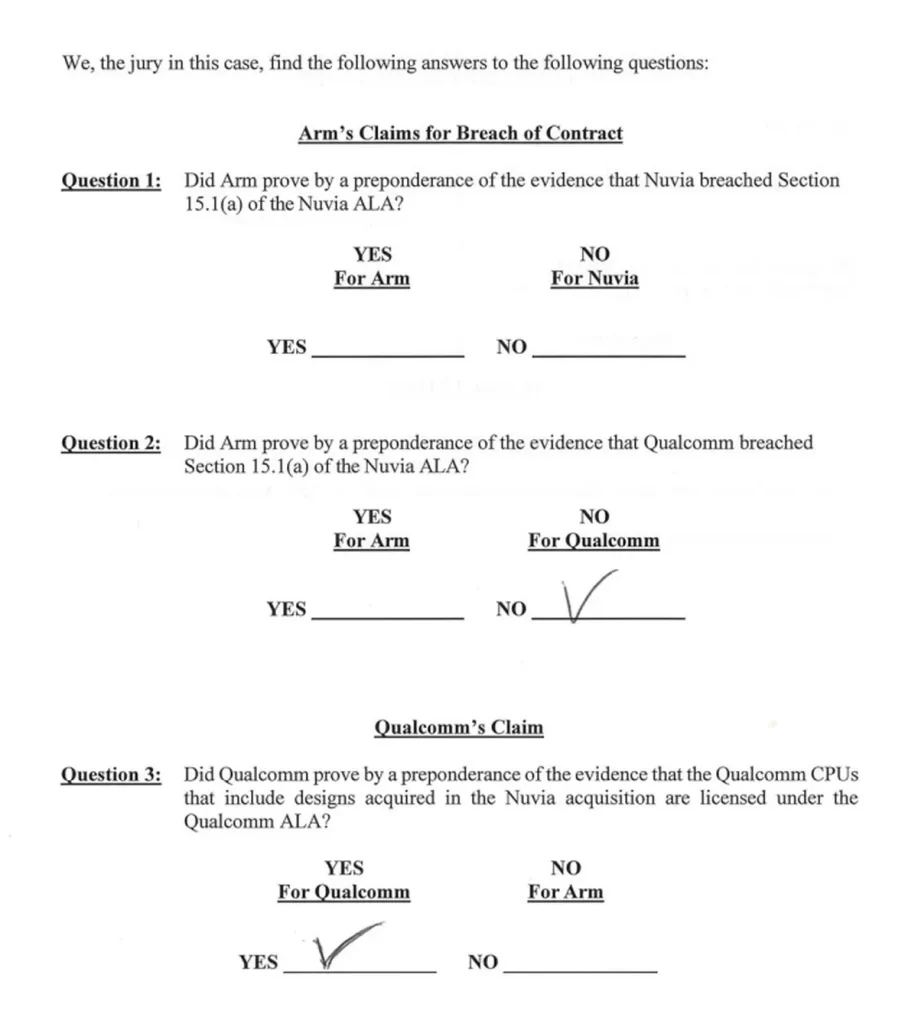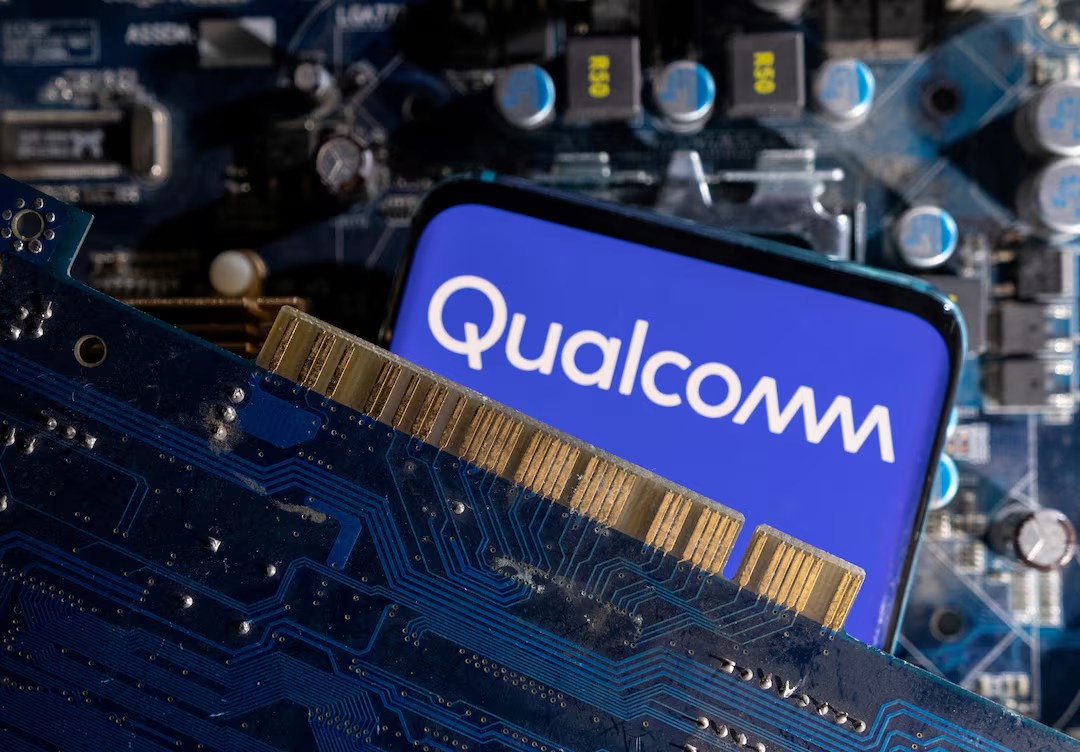Qualcomm recently emerged victorious in a legal dispute with Arm, after a federal jury in Delaware ruled in favor of the chipmaker in a case regarding its 2021 acquisition of Nuvia, a startup founded by three former Apple engineers. This legal battle, which has been ongoing for over two years, centered on claims that Qualcomm breached its licensing agreement with Arm by acquiring Nuvia and continuing to use Arm’s licensed chip designs in Nuvia’s technology. Although the jury sided with Qualcomm, the case is far from over, and further proceedings are expected.
The Legal Dispute: Qualcomm’s Acquisition of Nuvia
In 2021, Qualcomm purchased Nuvia for a substantial $1.4 billion, aiming to strengthen its portfolio with next-generation chips, such as the Snapdragon X chips that are found in some of today’s Copilot Plus laptops. However, the acquisition triggered a legal dispute with Arm, the British chip design firm that licenses its technologies to various companies, including Qualcomm. Arm argued that Qualcomm had violated its licensing agreement by continuing to use chip designs that Arm had licensed to Nuvia, prior to its acquisition.
This legal challenge had significant implications for Qualcomm, as Arm’s chip designs are central to much of the company’s technology. The lawsuit raised questions about whether the designs that Nuvia had licensed were still valid following the acquisition and whether Qualcomm could legally continue using those technologies.

Jury’s Verdict: A Win for Qualcomm, but Not a Clear-Cut Victory
On Friday, December 19, 2024, the jury ruled in favor of Qualcomm, stating that the company did not breach its licensing agreement with Arm through the Nuvia acquisition. However, the case is not yet fully settled. While the jury sided with Qualcomm, it was unable to determine whether Nuvia had breached its agreement with Arm before the acquisition, leaving the door open for further litigation.
According to US District Court Judge Maryellen Noreika, the case was far from a clear-cut win for either side. “I don’t think either side had a clear victory or would have had a clear victory if this case is tried again,” she said, indicating that the case could continue to evolve in the future.
Despite the favorable verdict for Qualcomm, the case has already exposed significant tensions between the two companies, particularly regarding Arm’s financial losses and the ongoing use of licensed technology.
Arm’s Claims and Qualcomm’s Defense
The origins of this legal battle date back to 2022 when Arm raised concerns over Qualcomm’s continued royalty payments, which it claimed were significantly lower than the royalties Nuvia had been paying. Arm contended that the chip designs licensed to Nuvia were no longer valid after the acquisition, and demanded that Qualcomm either cease using those designs or destroy any technology derived from them.
In response, Qualcomm argued that it was entitled to continue using the designs and that its contract with Arm covered the technologies developed by Nuvia, even after the acquisition. The chipmaker also emphasized that its internal documents showed it projected potential savings of up to $1.4 billion annually by continuing to pay lower royalty fees to Arm, further complicating the financial aspect of the dispute.
During the trial, it was revealed that Nuvia co-founder Gerard Williams testified that the startup had used “one percent or less” of Arm’s licensed technology in the final products it developed. This revelation played a role in the jury’s decision, helping to sway the outcome in Qualcomm’s favor.
Arm’s Position and Future Implications
Although the jury ruled in Qualcomm’s favor, Arm CEO Rene Haas has remained firm in his stance on the dispute. In an interview earlier this week, Haas reiterated that the reasons behind Arm’s legal action were unchanged. While he did not comment directly on the specifics of the trial, his comments suggest that Arm sees this case as part of a broader strategy to protect its licensing model and ensure its technology is used in accordance with its agreements.
The legal proceedings also shed light on Arm’s financial concerns. According to internal documents presented during the trial, Arm estimated it could lose as much as $50 million in revenue due to the Nuvia acquisition. This figure reflects the financial stakes involved in the case, which could have far-reaching consequences for Arm’s business model and its relationships with licensees like Qualcomm.
What Happens Next?
For Qualcomm, the jury’s decision is a win, and the company has expressed its satisfaction with the outcome. In a statement, Qualcomm’s general counsel, Ann Chaplin, praised the verdict, saying, “The jury has vindicated Qualcomm’s right to innovate and affirmed that all the Qualcomm products at issue in the case are protected by Qualcomm’s contract with ARM.” Chaplin emphasized that Qualcomm would continue to develop cutting-edge products, including custom ARM-compliant CPUs, to benefit consumers worldwide.
However, the legal battle is not over yet. With the jury unable to reach a decision on whether Nuvia breached its own agreement with Arm, the case could be revisited, and further trials could be required. The ongoing litigation underscores the complex nature of intellectual property agreements and licensing in the semiconductor industry.
At the heart of this dispute is the future of mobile and computing technologies, as companies like Qualcomm continue to rely on Arm’s chip designs to power their innovations. The outcome of this case will likely set a significant precedent for the future of chip licensing agreements, particularly as companies like Qualcomm and Arm work to navigate an increasingly competitive market.
Conclusion
The legal conflict between Qualcomm and Arm is a significant moment in the tech industry, with the jury siding with Qualcomm in a case that has involved multiple legal and financial considerations. While Qualcomm has won this round, the case is not yet fully resolved, and the broader implications of the dispute could shape the future of chip technology licensing. With both companies likely to continue to press their respective positions, the final resolution could have lasting effects on the industry. As the legal battle unfolds, all eyes will remain on Qualcomm, Arm, and Nuvia as they navigate this complex and high-stakes dispute.

